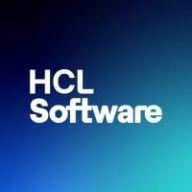

HCL AppScan and SonarQube Cloud are key players in the realm of security solutions and code quality management. While HCL AppScan stands out for its comprehensive security features, SonarQube Cloud advantages lie in seamless cloud integration and cost-effectiveness, especially suitable for startups.
Features: HCL AppScan is known for its extensive vulnerability detection including SQL injection and XSS, enhanced by AI-powered features and detailed remediation steps. It offers robust integration with DevSecOps processes and supports a wide range of programming languages. SonarQube Cloud provides continuous code analysis, highlighting security hotspots and bugs efficiently, and offers easy integration with version control tools, simplifying the development workflow for teams.
Room for Improvement: HCL AppScan could benefit from better integration with mobile-specific checks and needs to smooth out connections with more reporting tools and CI/CD pipelines. Addressing high false-positive rates is essential. SonarQube Cloud requires better documentation for setup and needs to enhance its vulnerability detection capabilities. It would also profit from more customizable reporting features to minimize manual conversions.
Ease of Deployment and Customer Service: HCL AppScan offers flexible deployment options such as on-premises and hybrid cloud, yet its technical support has faced some criticism post-IBM, particularly in response time. SonarQube Cloud, being cloud-exclusive, simplifies integration in cloud environments and is praised for its responsive and effective customer service, making migrations smoother.
Pricing and ROI: HCL AppScan, though considered pricey, delivers value through cost savings and vulnerability reduction, observable in ROI gains. SonarQube Cloud's pricing model, based on lines of code, is seen as cost-effective, especially for large codebases. The community version offers a budget-friendly alternative, and even with potential price increases for extensive analyses, it remains appealing compared to competitors.


IBM Security AppScan enhances web application security and mobile application security, improves application security program management and strengthens regulatory compliance. By scanning your web and mobile applications prior to deployment, AppScan enables you to identify security vulnerabilities and generate reports and fix recommendations.
SonarQube Cloud offers static code analysis and application security testing, seamlessly integrating into CI/CD pipelines. It's a vital tool for identifying vulnerabilities and ensuring code quality before deployment.
SonarQube Cloud is widely used for its ability to integrate with tools like GitHub, Jenkins, and Bitbucket, providing critical feedback at the pull request level. It's designed to help organizations maintain clean code by acting as a quality gate. This service supports development methodologies including sprints and Kanban for ongoing vulnerability management. While appreciated for its dashboard and integration capabilities, some users find initial setup challenging and note the need for enhanced documentation. The recent addition of mono reports and microservices support offers deeper insights into security and code quality, though container testing limitations and false positives are noted drawbacks. Manual intervention is sometimes required to address detailed reporting, with external tools being necessary for comprehensive analysis. Notifications for larger teams during serious issues and streamlined integration of new features are also areas of improvement.
What are the key features of SonarQube Cloud?In specific industries, SonarQube Cloud finds application in finance and healthcare where code integrity and security are paramount. It allows teams to identify critical vulnerabilities early and ensures that software development aligns with industry regulations and standards. By continuously analyzing code, it aids organizations in deploying secure and reliable applications, fostering trust and compliance.
We monitor all Static Application Security Testing (SAST) reviews to prevent fraudulent reviews and keep review quality high. We do not post reviews by company employees or direct competitors. We validate each review for authenticity via cross-reference with LinkedIn, and personal follow-up with the reviewer when necessary.